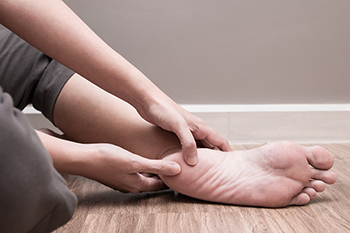
Heel pain is a common complaint, often attributed to factors like wearing improper footwear or overuse. However, it may surprise you to learn that heel pain can also be a subtle signal of arthritis, specifically, ankylosing spondylitis, or AS. This chronic autoimmune condition primarily affects the spine, but it can also extend its reach to peripheral areas, including the heels. AS triggers heightened inflammation throughout the body’s joints and soft tissues, including peripheral joints like the heels, hips, shoulders, fingers, and toes. Heel pain emerges when the inflammatory response targets the heel or its supporting ligaments and tendons. Chronic back pain and spinal rigidity are classic AS symptoms, and may also cause discomfort in the heels. If left untreated, the pain can escalate, leading to severe stiffness and reduced mobility. The precise cause of AS remains unknown, but those with a family history of ankylosing spondylitis or with conditions like Crohn's disease, psoriasis, or ulcerative colitis, seem to be more susceptible. If you are experiencing persistent heel pain in addition to other symptoms, it is suggested that you schedule an appointment with a podiatrist to explore potential underlying causes, and create an effective treatment plan.
Many people suffer from bouts of heel pain. For more information, contact one of our podiatrists of Romeo Foot & Ankle Clinic. Our doctors can provide the care you need to keep you pain-free and on your feet.
Causes of Heel Pain
Heel pain is often associated with plantar fasciitis. The plantar fascia is a band of tissues that extends along the bottom of the foot. A rip or tear in this ligament can cause inflammation of the tissue.
Achilles tendonitis is another cause of heel pain. Inflammation of the Achilles tendon will cause pain from fractures and muscle tearing. Lack of flexibility is also another symptom.
Heel spurs are another cause of pain. When the tissues of the plantar fascia undergo a great deal of stress, it can lead to ligament separation from the heel bone, causing heel spurs.
Why Might Heel Pain Occur?
- Wearing ill-fitting shoes
- Wearing non-supportive shoes
- Weight change
- Excessive running
Treatments
Heel pain should be treated as soon as possible for immediate results. Keeping your feet in a stress-free environment will help. If you suffer from Achilles tendonitis or plantar fasciitis, applying ice will reduce the swelling. Stretching before an exercise like running will help the muscles. Using all these tips will help make heel pain a condition of the past.
If you have any questions please contact our offices located in Washington and Shelby Townships, MI . We offer the newest diagnostic and treatment technologies for all your foot and ankle needs.
